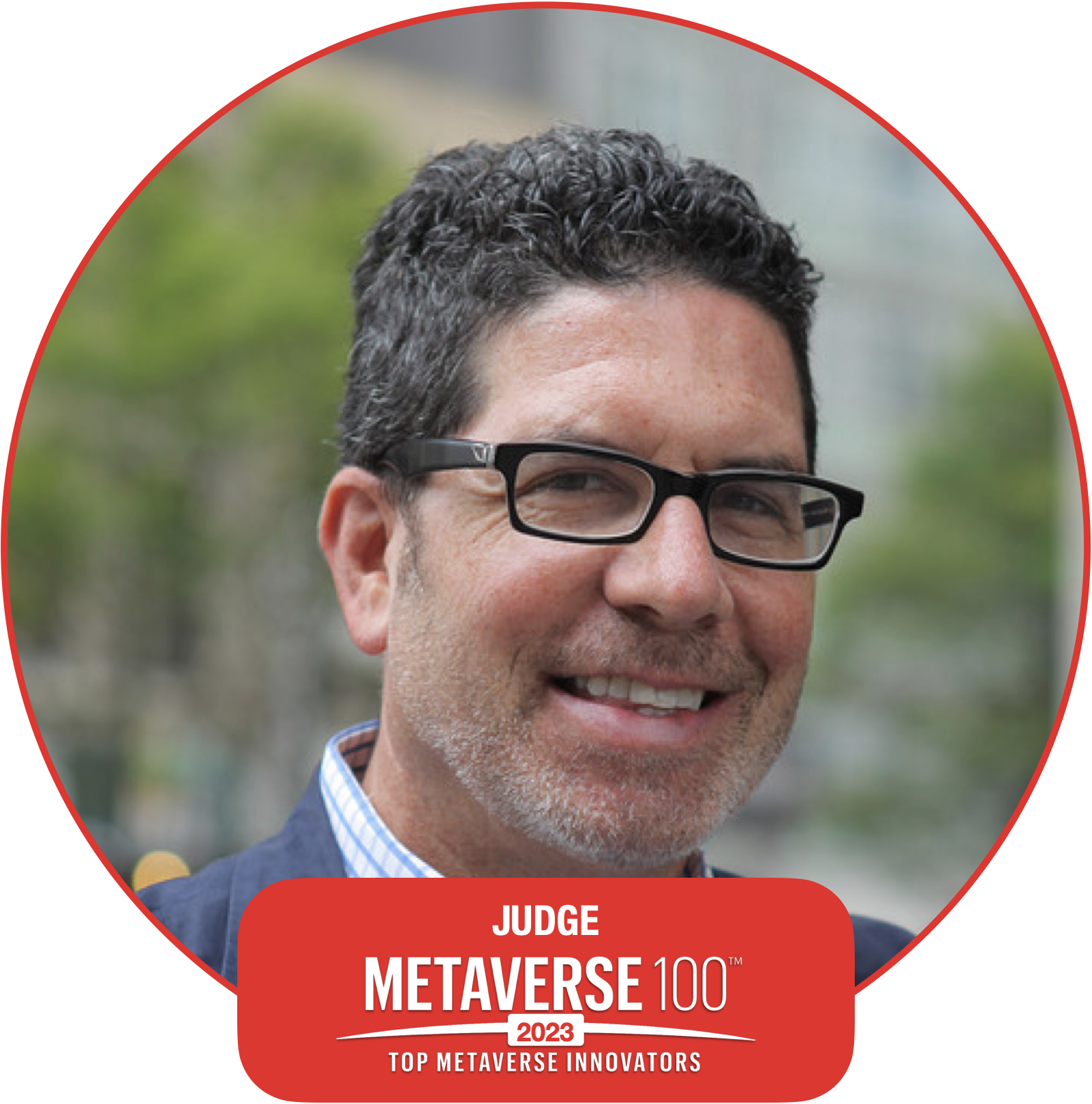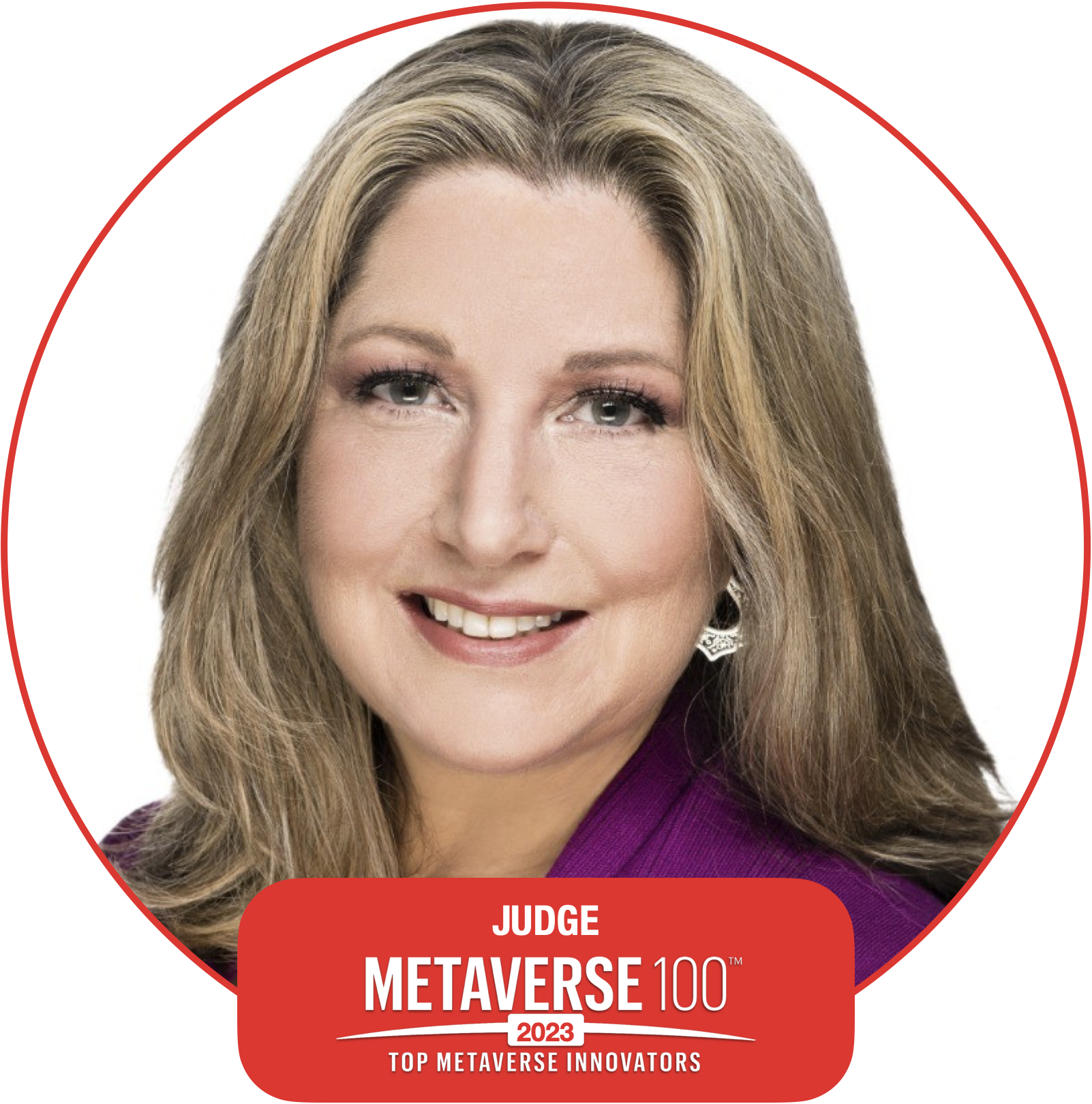Igniting Innovation at Unprecedented Speeds – Insights from Industry Leaders
In November 2022, the debut of ChatGPT marked the inception of the artificial intelligence era. CommPRO asked the judges of the 2023 Metaverse 100 to weigh in how do they perceive AI's impact on innovation and as AI speeds up human tasks; how might this affect innovation.
Robin Raskin, Founder of The Virtual Events Group, predicts that historians will pinpoint this moment as the dawn of AI's transformative impact. The rapid adoption of AI and the multitude of tools introduced have catapulted us into a new era where AI works alongside us, streamlining labor-intensive tasks. However, Raskin cautions that AI is not a trusted employee or friend but a force that should be continually questioned.
“When historians look back to Nov 2020, when ChatGPT was unleashed to an unsuspecting public, they will undoubtedly mark it as the day the AI era began. The speed of adoption and the plethora of tools being introduced make the early days of the Internet seem like they happened at a snail's pace. For the moment AI will work alongside us, doing many of the labor-intensive tasks we abhor, but make no mistake, AI is not a trusted employee or your pal. It is something you must keep questioning. And when it comes to innovation, humans still drive the creative process, for now.” - Robin Raskin, Founder, The Virtual Events Group
John McCarus, Founder and CEO of Content Ink, envisions AI as a liberator, freeing individuals from repetitive tasks to focus on creative problem-solving. He believes that AI's potential extends beyond mundane tasks, with the potential to influence innovative thinking by rearranging the building blocks of ideas.
“Maybe harnessing AI to do the repeatable tasks faster will free people up to focus on creative solutions. But its not just about mundane repeatable tasks its also about the process around innovation and creativity. Creativity is time consuming and painful. But as an example, if AI can generate an outline for an idea or do the simple coding to produce a new piece of software, the innovation might be in the way that lots of bits of simple code is strung together or the sequence of how an outline is produced that leads to new thinking. My hope is that AI will allow us to consider new ways of solving problems by rearranging the pieces which may not only save time but spark new outcomes as our brainspace frees up to consider perspectives we have never considered.” - John McCarus, Founder & CEO, Content Ink
Jeremy Bloom, Founder and CEO of OhHello.io, highlights AI's role in boosting efficiency by expediting tasks that were previously time-consuming and less fruitful. AI, he asserts, allows us to work smarter, saving valuable time.
“AI's impact on innovation is that it accelerates the lulls and previously mundane or hard to tackle to-dos; AI helps us to short-cut the more time consuming tasks. AI is helping humans to work SMARTER and more efficiently vs wasting time. It's giving us back hours of time each and every day on tasks that were less fruitful but so time consuming.” - Jeremy Bloom, Founder & CEO, OhHello.io
Linda Ricci, a Strategist & Evangelist, emphasizes AI's capacity to accelerate innovation by enhancing creativity and facilitating connections. AI empowers individuals to explore, test hypotheses, and connect data without the barriers of specialized modes of interaction. It democratizes the innovation process and encourages the participation of more creative minds.
“Artificial intelligence enables creativity and speeds up connections. Innovation is about connecting dots where there may have been no obvious connections before, so the speed at which we can investigate, query, explore can increase exponentially. Similarly, AI allows for enhanced creativity - in both speed and scale. Testing a hypothesis, investigating an idea, connecting data from the entire dataset of human existence: the natural language branch of AI will enable anyone to interact with this data, eliminating the need for learning formal or specialized modes of interaction, democratizing the innovation process and ensuring that more creative minds are involved. We are on the cusp of being able to think, explore and connect without barriers. What better tool can we have - at a time when humanity is facing some of the biggest challenges we've faced yet - to accelerate innovation than that?” - Linda Ricci
Ty Braswell, Founder of Creative Digital Strategies, observes that AI disruptions occur at an unprecedented velocity. ChatGPT, for instance, progressed remarkably within just ten months of its release. He anticipates that quantum computing will further accelerate AI, offering both challenges and creative opportunities for brands and content creators.
“AI’s disruptions move at a velocity unlike other historic digital disruptions. For the music-industry it was Napster, for live sports it was the iPhone and for network television it was YouTube. ChatGBT just 10 months since their Nov 30 release announced it can now ‘speak,’ listen and process images. ChatGBT teased how it can now “request a bedtime story for your family, or settle a dinner table debate. Coming soon to increase the velocity for AI is quantum computing. Quantum computing solves complex problems faster than classical computers. It uses the unique behaviors of quantum physics to solve problems that are too complex for classical computing. With all this velocity...comes the challenge of innovation decision making at the speed of technology that will test your creative courage. The new canvas that AI and quantum computing are providing for brands and content creators will be both a challenge along with incredible creative opportunities to reach and engage their digitally native Gen Z and Gen Alpha audiences beyond the traditional marketing approaches.” - Ty Braswell, Founder, Creative Digital Strategies
Sasha Wallinger, Founder & CEO of Blockchain Style Lab, underscores AI's catalytic impact on innovation, particularly in fashion. AI has streamlined supply chain processes, enabled designers to collaborate with AI thought partners, and catalyzed new ideas. Wallinger believes that we are only scratching the surface of AI's potential across the fashion tech landscape.
“Artificial Intelligence has had a catalytic impact on innovation. With its ability to harness data at a lightning speed, it has empowered humans to curate, create and ideate at a pace that had previously been unthinkable. In the fashion space specifically, AI has empowered a rethinking of supply chain process efficiency, ranging from design, production and consumer engagement integration points. It has also enabled designers to utilize services such as DALL-E, or Chat GBT as thought partners, who have the potential to catalyze new ideas and envision concepts for events from photo shoots to virtual worlds, that had previously been unthinkable. While some designers have leveraged AI for photo shoots and marketing campaigns, I believe we are just beginning to see some of the capabilities of this tool across the creative, collaboration and community building journey that is the fashion tech space.” - Sasha Wallinger, Founder &CEO, Blockchain Style Lab
In essence, AI has ushered in an era of unprecedented innovation, allowing us to rethink established processes, spark creativity, and connect the dots in ways previously unimaginable. Its transformative power is already evident across diverse industries, and its full potential is yet to be fully harnessed.
Have you entered to be listed on the 2023 Metaverse 100 list of innovative companies in the metaverse, artificial intelligence, augmented and virtual reality and Web 3? The top 100 companies are selected by an esteemed panel of judges that will be looking for the most inspiring and innovative companies.







